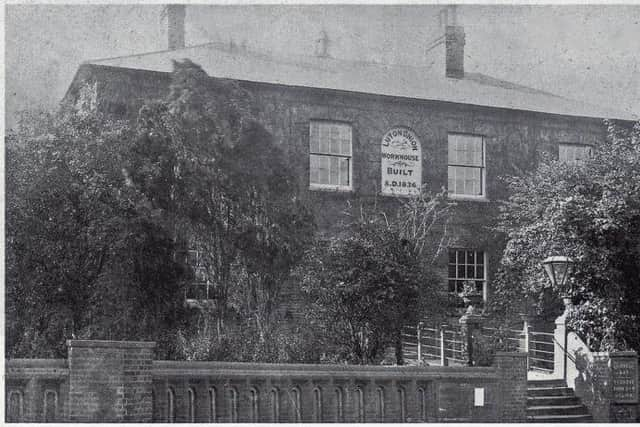Discover how Luton’s community adapts to road closures and infrastructure upgrades, turning short-term disruption into long-term sustainability and resilience. Learn more now!
The Luton Union Workhouse, established in 1836 on land generously donated by the Marquis of Bute, stands as a testament to the social conscience of a bygone era. For nearly two centuries, it has served as a sanctuary for those unable to support themselves, providing essential food, shelter, and medical care to residents of Luton and 14 surrounding parishes. As we delve into the history and significance of this institution, we uncover the crucial role it played in the lives of many individuals and families during times of hardship.
A Historical Overview of the Luton Union Workhouse
In the wake of the Poor Law Amendment Act of 1834, which aimed to reform the existing system of poor relief in England, the Luton Union Workhouse emerged as a part of a larger movement to address poverty. It was one of several workhouses built during this period, designed to house those who found themselves destitute due to various circumstances, such as unemployment, illness, or familial breakdowns.
Situated on the outskirts of Luton, the workhouse was not merely a place of confinement; rather, it functioned as a community hub for the vulnerable. With its formidable brick façade and utilitarian architecture, the building symbolised both the stern reality of the welfare system and the compassionate intent behind it. The Marquis of Bute's donation reflected a recognition of the need for a humane response to poverty, an ethos that permeated the workhouse's operations.
Life Inside the Workhouse

Inside the walls of the Luton Union Workhouse, life was characterised by strict discipline and routines aimed at instilling work ethics among residents. The primary principle behind the workhouse system was to encourage self-reliance through labor. Inmates were expected to contribute to their upkeep by engaging in various tasks, from agricultural work to domestic chores.
While conditions were often austere and far from comfortable, the workhouse provided an absolute necessity: security. For many families, it represented a safeguard against starvation and destitution. Children, women, and men were housed separately, and efforts were made to maintain some semblance of order and dignity amid the hardships. Educational initiatives for the younger inhabitants, albeit limited, offered a glimmer of hope and opportunity for future prospects.
The Impact on the Community
The significance of the Luton Union Workhouse extended beyond its immediate confines. It played a crucial role in alleviating the burden of poverty in the wider Luton area. By providing refuge and resources, the institution prevented widespread starvation and supported countless families who faced economic struggles.
As the industrial revolution transformed Luton into a bustling hub of hat-making and other industries, the demand for labor grew. However, with growth came the inevitable cycles of boom and bust, leading to periodic surges in unemployment. During these times, the workhouse became an essential lifeline for those who had fallen on hard times. Records from the era reveal that the institution was often at full capacity, reflecting the desperate circumstances faced by many.
Legacy and Modern Reflection
Today, the legacy of the Luton Union Workhouse is remembered as part of our historical journey towards understanding social welfare. The principles that guided its establishment resonate in contemporary discussions about poverty, aid, and community support. In viewing the workhouse through a modern lens, we recognise both the systemic challenges of the past and the progress made in our approaches to social welfare.
As we reflect on the trials faced by the residents of the Luton Union Workhouse and the efforts made by those who operated it, we are reminded that compassion and community spirit remain vital values in our ongoing fight against poverty. The story of the workhouse urges us to continue addressing these issues with a blend of empathy and action, ensuring that no one is left behind in times of need.
In conclusion, the Luton Union Workhouse stands not only as a historical institution but as a beacon of our collective responsibility to care for the vulnerable among us. As we honor its legacy, let us strive to foster a society where compassion prevails and every individual is afforded the opportunity for a better life.